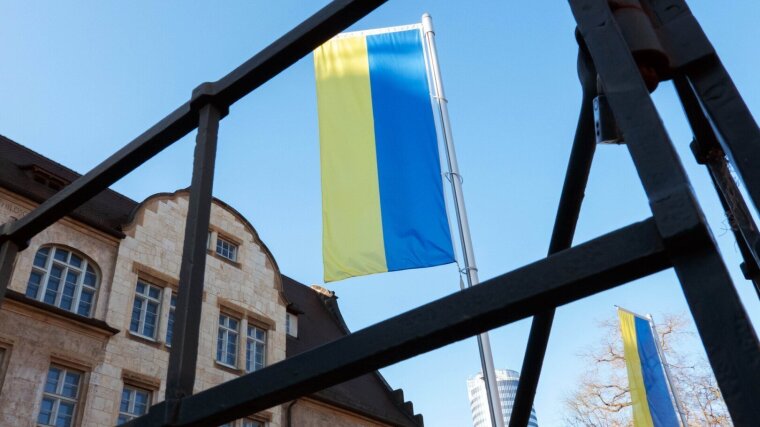
- Liberty
- International Affairs
Published: | By: Stephan Laudien
Studying under the conditions of war is bitter everyday life for hundreds of thousands of students in Ukraine. But alongside bombings, destroyed libraries and power cuts, there are also encouraging signs of solidarity. In March 2022, for example, the Invisible University for Ukraine (IUFU) was founded in the immediate aftermath of the Russian invasion.
This "invisible" university, supported by the Central European University Budapest/Vienna, has set up a primarily online-based support system for Ukrainian students, in which the Imre Kertész Kolleg Jena, and thus Friedrich Schiller University Jena, is involved for the sixth semester. Since then, over 1,800 students from more than 72 institutions of higher education in Ukraine have taken part in IUFU courses. The Imre Kertész Kolleg has awarded almost 300 scholarships with funds from the German Academic Exchange Service (DAAD). The majority of recipients still live and study in Ukraine.
IUFU was honoured in 2024 by the McCourtney Institute for Democracy with the Brown Democracy Medal 2024 from Penn State University (USA) for its support of Ukrainian students and institutions of higher education.
Desperate search for everyday life in the face of catastrophe
"I am deeply impressed by the passion and commitment of these students, their language skills and their sense of social responsibility," says Prof. Dr Joachim von Puttkamer, Director of the Imre Kertész Kolleg. The Invisible University for Ukraine does two things: it offers Ukrainian students an international study programme with world-leading academics from the humanities, social sciences and Law, and at the same time sends a strong signal of academic solidarity with Ukraine.
"We at the Kolleg can be proud of the fact that we have been able to make a substantial contribution to this with DAAD funding and our long-established academic network," says von Puttkamer. A contribution that is still urgently needed. Despite many efforts, little has changed in the everyday lives of students. Rather, it can be said that the catastrophe is becoming normalized, that people are desperately searching for a daily routine in war.
Reflections on studying in times of war
This fragile everyday life in times of war is summarized in the anthology "Invisible University for Ukraine. Essays on Democracy at War"External link, which has just been published by Cornell University Press as an open access publication. The book brings together reflections from those involved in the IUFU on what it means to live under constant military fire, to be confronted with the loss of friends and affiliates, to have to deal with hatred and to endure fears about the future. The anthology will be presented to a wider audience on Friday, 25 April at 3 pm at Humboldt-Universität zu Berlin.
As the DAAD funding programme will soon come to an end, the Invisible University for Ukraine will be continued by the Central European University Budapest/Vienna on its own for the time being. Meanwhile, the Imre Kertész Kolleg is looking for alternative ways to continue supporting Ukrainian students. The signs of solidarity have not become less urgent.
